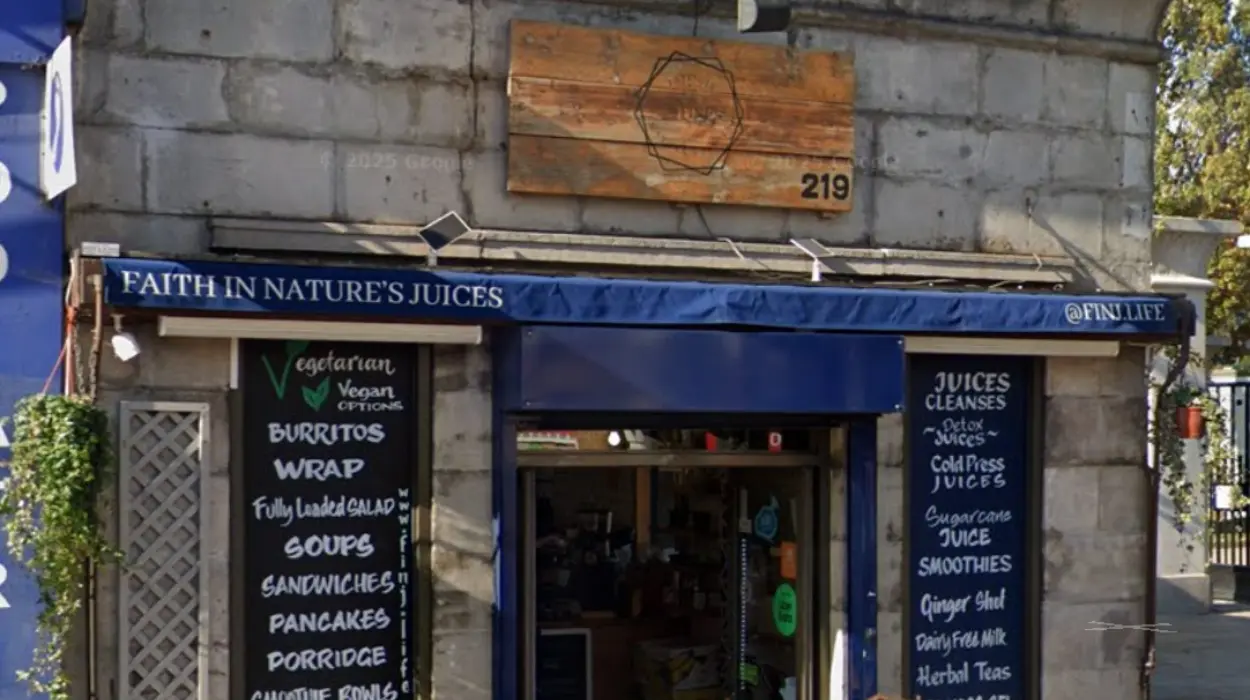Key Points
- An East London juice bar owner has criticised Tower Hamlets Council’s refusal to allow four outdoor tables outside her business.
- The refusal was based on claims that the tables would encroach on nearby park land.
- The business owner described the council’s decision as “ridiculous” and argued that the tables would not obstruct public access or harm the park environment.
- The dispute highlights tensions between local businesses seeking to expand outdoor seating post-pandemic and councils aiming to protect public spaces.
- The council maintained that protecting the park land from encroachment was a priority and that the refusal was in line with local policies.
- The story has attracted local community attention and debate about balancing business needs and public access rights.
What happened with the outdoor tables at the East London juice bar?
As reported by Paige Quinn of MyLondon, the owner of a popular juice bar in East London expressed strong dissatisfaction after Tower Hamlets Council refused her application to place four tables outside the premises . The owner argued that the refusal was “ridiculous” and disproportionate, as the proposed tables were intended to serve customers in an outdoor setting while respecting the nearby park’s boundary.
- Key Points
- What happened with the outdoor tables at the East London juice bar?
- Why did the council refuse the tables citing ‘park encroachment’?
- How did the juice bar owner respond to the council’s stance?
- What is the broader context of outdoor seating and local business needs in East London?
- What does the community say about the refusal of tables outside the juice bar?
- What are the next steps or possible resolutions for this dispute?
The council’s decision hinged on concerns that the tables would infringe on the green space adjacent to the business, potentially disrupting the public’s use and enjoyment of the park. According to council representatives, their priority was to safeguard public land from any form of “encroachment” and maintain its integrity for community use, reflecting local government policies designed to protect open spaces.
Why did the council refuse the tables citing ‘park encroachment’?
Tower Hamlets Council officials emphasized the importance of preserving park land for public use and preventing commercial activities from overstepping designated areas. The refusal was part of a broader framework ensuring that outdoor seating applications near parks do not negatively affect the environment or limit access to residents and visitors. The council stated that allowing the tables in the proposed location would set a precedent that could undermine future efforts to protect green spaces.
How did the juice bar owner respond to the council’s stance?
The juice bar owner, whose identity was kept discreet for privacy reasons, vehemently opposed the council’s rationale. She insisted that the four tables would be positioned carefully to avoid any obstruction or damage to the park. She criticized the decision as lacking common sense and detrimental to local businesses still recovering from the pandemic’s economic impact.
In her comments reported by Quinn, the owner highlighted the need for outdoor seating solutions in urban areas, especially given the heightened demand for open-air dining amid health concerns. She urged the council to reconsider the decision and take a more flexible approach that balances business vitality with public space preservation .
What is the broader context of outdoor seating and local business needs in East London?
This dispute reflects ongoing tensions in urban centres like East London, where popular local businesses seek to enhance their customer experience through outdoor services, yet face regulatory hurdles aimed at safeguarding public amenities. Since the pandemic, outdoor dining and retail spaces have become vital for business survival, prompting many councils to review their policies to accommodate such changes without compromising public interests.
What does the community say about the refusal of tables outside the juice bar?
The refusal has sparked debate among residents and local business advocates, with some supporting the council’s protective stance and others sympathizing with the juice bar’s quest for outdoor seating. Community members highlight the importance of maintaining accessible, clean park areas while also recognising the role of small businesses in urban neighbourhood vitality.
What are the next steps or possible resolutions for this dispute?
As it stands, the juice bar owner has not indicated whether she will appeal the council’s decision or seek alternative arrangements. Tower Hamlets Council reiterated its commitment to work with local businesses but remained firm on the principle of protecting green spaces.



